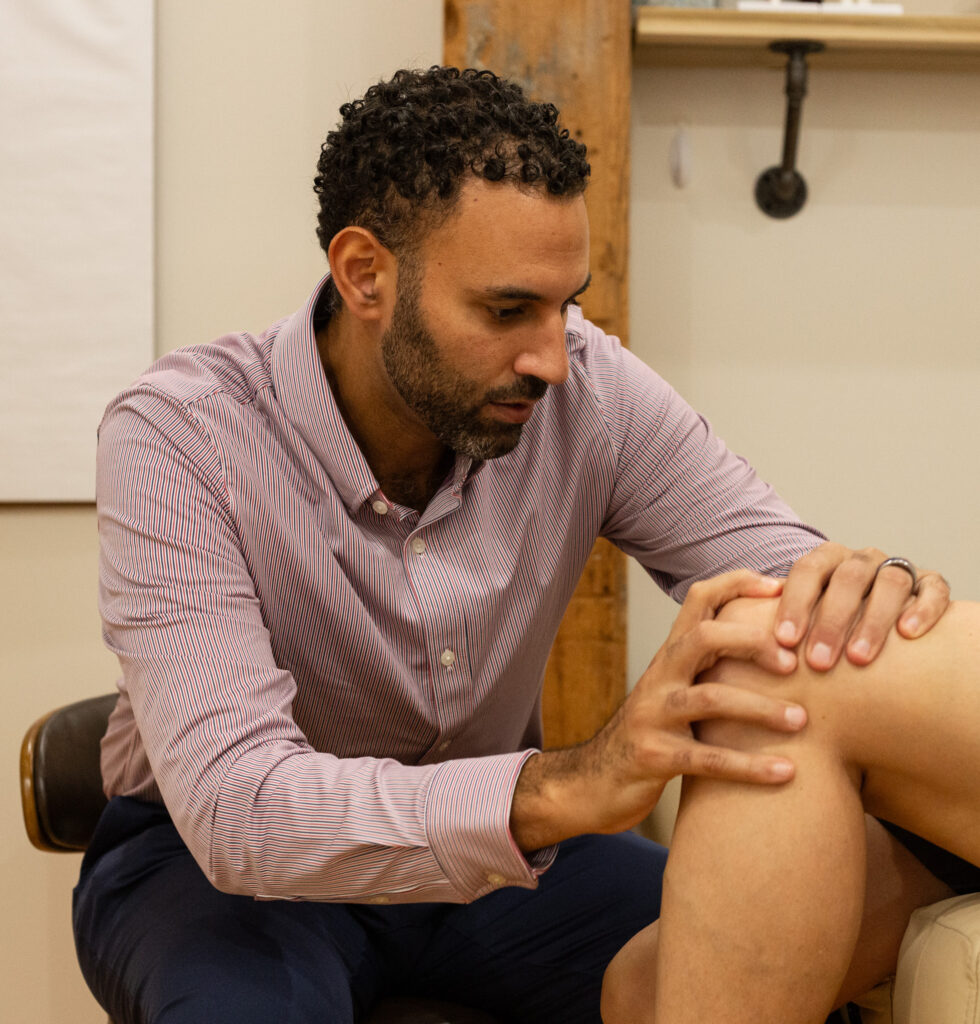In the world of sports medicine and injury recovery, innovative therapies are constantly being explored to enhance healing and reduce recovery times. One such cutting-edge treatment is peptide therapy, a nonsurgical alternative that promotes faster healing by leveraging the body’s natural regenerative processes. At Meeting Point Health in Philadelphia, Dr. Stephen Matta offers peptide therapy as a solution for individuals seeking to recover from injuries without invasive surgery or prolonged downtime.
What is Peptide Therapy?
Peptides are short chains of amino acids that serve as building blocks for proteins, which play critical roles in nearly every biological function in the human body. In recent years, research has demonstrated that specific peptides can stimulate the body’s natural healing mechanisms, making them valuable tools in regenerative medicine.
Peptide therapy involves the use of bioactive peptides to promote tissue repair, reduce inflammation, and accelerate recovery. This therapy has gained attention for its ability to aid in injury repair, especially in athletes or individuals dealing with joint, muscle, or tendon injuries. Unlike surgical options, peptide therapy offers a minimally invasive, nonsurgical alternative to enhance the body’s natural healing processes.
How Peptide Therapy Works for Injury Repair
When an injury occurs, the body’s natural response is to send healing agents, such as growth factors and stem cells, to the damaged area. Peptide therapy amplifies this process by introducing peptides that stimulate these healing pathways more effectively. Some of the most commonly used peptides in injury repair include:
BPC-157
This peptide is derived from a protective protein found in the stomach. BPC-157 has been shown to promote tissue repair, reduce inflammation, and support healing in muscles, tendons, and ligaments. It also enhances blood flow to damaged tissues, which accelerates recovery.
TB-500 (Thymosin Beta-4)
TB-500 plays a key role in healing and regeneration by promoting cell migration, differentiation, and tissue repair. It is especially effective in reducing inflammation and scar tissue formation, making it a popular option for treating sports injuries.
GHK-Cu
GHK-Cu is a copper peptide known for its regenerative properties. It aids in wound healing, collagen production, and tissue repair. GHK-Cu also has anti-inflammatory effects, which can help reduce swelling and discomfort during the recovery process.
Benefits of Peptide Therapy Over Surgery
For many patients, the prospect of surgery can be daunting due to the associated risks, downtime, and long recovery periods. Peptide therapy offers an alternative approach, focusing on promoting the body’s natural regenerative capabilities without the need for invasive procedures. Here are some of the key benefits of peptide therapy for injury repair:
Faster Recovery Time
Peptide therapy accelerates the healing process, allowing patients to recover more quickly from injuries. By stimulating tissue repair and reducing inflammation, peptides help patients return to their normal activities faster than with traditional methods.
Minimally Invasive
Unlike surgery, which involves incisions and lengthy recovery periods, peptide therapy is a minimally invasive option that can be administered via injections or oral supplements. Patients can often resume their daily activities shortly after treatment.
Reduced Inflammation and Pain
Peptides like BPC-157 and TB-500 have strong anti-inflammatory properties, which not only speed up the healing process but also reduce pain and discomfort associated with injuries.
Avoiding Long-Term Scar Tissue
Surgery can sometimes lead to the formation of scar tissue, which can limit mobility and cause long-term discomfort. Peptide therapy helps to reduce scar tissue formation, promoting more effective healing.
Why Choose Dr. Stephen Matta at Meeting Point Health?
At Meeting Point Health in Philadelphia, Dr. Stephen Matta is a leader in the field of regenerative medicine, offering personalized treatment plans tailored to each patient’s specific needs. With a deep understanding of peptide therapy, Dr. Matta focuses on delivering results-driven care that promotes faster healing without the need for invasive surgery.
Dr. Matta combines peptide therapy with other advanced regenerative treatments, such as stem cell therapy, PRP (Platelet-Rich Plasma), and Prolotherapy, to provide comprehensive, holistic care for injury repair. Whether you’re an athlete recovering from a sports injury or an individual dealing with chronic pain from past injuries, Dr. Matta’s approach emphasizes non-surgical solutions that get you back to doing what you love, faster.
Is Peptide Therapy Right for You?
If you’re dealing with an injury and looking for an alternative to surgery, peptide therapy may be a viable option. It’s particularly effective for those recovering from musculoskeletal injuries, such as sprains, strains, tendonitis, and ligament tears. Dr. Matta can help determine if peptide therapy is the right treatment for your specific condition during a consultation at Meeting Point Health.
By exploring peptide therapy, Dr. Stephen Matta offers a path to faster recovery and long-term healing through cutting-edge, non-surgical treatments at Meeting Point Health in Philadelphia. If you’re interested in learning more or scheduling a consultation, visit Meeting Point Health to start your journey toward recovery today.
Sources:
- U.S. National Library of Medicine. “Peptide Therapeutics: Current Status and Future Directions.”
- Journal of Sports Science and Medicine. “The Role of Peptides in Injury Recovery.”
- Harvard Health Publishing. “Innovative Uses of Peptides in Regenerative Medicine.”


